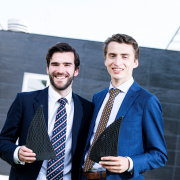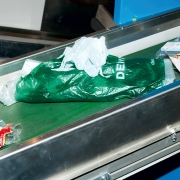Finnish Equipment for Myanmar’s Landfills
Yangon authorities are using a new compactor – a Tana E260 – to improve the landfill management process.
With more than seven million people, Yangon (formerly known as Rangoon) is the largest city in Myanmar (also known as Burma). According to the information provided by Finnish firm Tana Oy, the city’s landfills need better compaction to reduce the need for opening new landfill sites and to avoid unauthorized dumping. Local authorities have now taken first steps in the application of purpose-built landfill equipment and modern waste management processes to centralize dumping in sanitary landfills.
As reported, the Yangon area has four landfills. “Three of them are already unusable due to improper compaction equipment,” the Finnish manufacturer with sales and service functions in more than 70 countries gave account. “The road rollers and excavators used for daily maintenance do not compact the landfills sufficiently to harden the refuse: The ground is too soft for trucks to operate on, and dumping becomes impossible.”
Burmese company Wong Fong Myanmar, which belongs to Singapore-based Wong Fong Industries Limited, is answering these challenges by encouraging local municipalities to use the correct equipment for landfill and waste management. The company recently signed a distributorship agreement with the Finnish manufacturer of waste management equipment, which includes landfill compactors, waste shredders and waste screening technologies. “Now a Tana landfill compactor – the first purpose-built compactor in the country – is utilized by the Yangon authorities in solving the acute landfill compaction issue,” Tana Oy informed.
“We are confident that together with Tana product range we can help in improving the landfill management process in Myanmar,” Sunny Liu from Wong Fong Myanmar is quoted.
According to the Finnish company, this first unit of landfill compactor in Myanmar is an encouraging step. “It indicates that the local government is ready to start investing in the development of sanitary landfills and use of purpose-built equipment.” The Yangon region would not be alone. Wong Fong Myanmar had invited committees from other Burmese states to come and see the machines in action, and they were now considering replacing their current machines. “We are seeing that governments from different states are putting their effort into improving the current waste management. They are investing in newer machines that are specifically made for the required tasks,” Sunny Liu was cited.
(GR 12019S)







